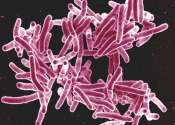Researchers deepen understanding of cellular stress responses
Chronic stress caused by changing temperatures, Alzheimer's disease or other diseases and forces is an unavoidable part of life. At the cellular level, the "first responders" to stress are known as molecular chaperones. Yet ...









